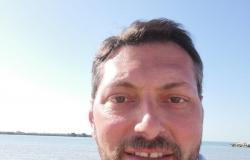National seminar on scientific research, medicine and bioethics
Introduction
On 14 June, a highly relevant seminar entitled “The Future of Scientific Research Today – Scientific Regulatory Legal Bioethical Philosophical Aspects” will be held at the Medical Association of Arezzo. This event, promoted by the Order of Surgeons and Dentists of Arezzo in collaboration with the OSA Scientific Association (Beyond animal testing), represents an opportunity to discuss and reflect on current animal testing practices and the future prospects of biomedical research , in view of the implications for health protection. The seminar aims to actively involve the medical community of Arezzo in an interactive debate regarding scientific research, exploring the validity of animal-based research models and comparing them with innovative methods that use human biology.
The Seminar and Its Objectives
The workshop has several key objectives, including:
- Inform participants on the critical aspects of current animal testing practices and on the predictability of new research methods based on human biology.
- Stimulate a critical discussion on the validity and effectiveness of animal models compared to humans.
- Involve actively engage the medical community in a constructive and interactive dialogue.
- Gather contributions and reflections for the drafting of a final document that can guide future scientific and regulatory initiatives.
There Purpose for which the organizers intend to explore and discuss the validity and effectiveness of animal-based research models, compared with innovative methods based on human biology to improve the predictivity and usefulness of research for human health, is to try to find answers to fundamental questions about the safety and effectiveness of current and future medical treatments.
The Scientific Context and the Pharmaceutical Crisis
Currently, 92% of drugs that pass the preclinical stage fail in human trials, and 51% of marketed drugs have unexpected serious adverse reactions. This data raises crucial questions about the reliability of the models pre-clinical based on old models in vitro and on animal models. The protocol phases of testing and marketing a drug, also described on the AIFA (Italian Medicines Agency) website, highlight the need to review current processes, to improve the safety and effectiveness of new treatments.
The drug crisis is an issue that requires thorough examination. High failure rates in clinical trials, with withdrawal of drug candidates already during clinical phases – in humans – and even after marketing authorization, suggest that animal models are not sufficiently predictive of effects in humans. This means enormous investments in terms of time and money with often disappointing results. The seminar intends to address these issues, proposing a reflection on possible alternatives and improvements in research and development processes.
Ethical and Bioethical Issues
One of the most delicate aspects of the debate concerns the ethical issues related to animal testing and the protection of human volunteers in the clinical phases. Some of the key questions that will be addressed include:
- How much can we actually consider the healthy volunteer to be protected in Phase I of clinical research?
- Is the risk to which one exposes oneself considered ethically acceptable?
- Do we have responsibilities and duties only towards our patients or are we also concerned with the protection of human guinea pigs?
The seminar will also address important ethical issues, such as the protection of healthy volunteers in Phase I of clinical research and responsibility towards human guinea pigs. It is essential to consider whether it is ethically acceptable to expose volunteers to significant risks and how to balance the need for scientific progress with the protection of human rights. The intention is to stimulate deep reflection on how to improve current processes to ensure greater safety and respect for human dignity.
Towards New Research Approaches
One of the main objectives of the seminar is to evaluate whether the current approach to biomedical research is the most effective or whether a paradigm shift is necessary. The organizers encourage participating doctors to actively contribute to the discussion and to the drafting of a final document that can reflect their experiences, opinions and suggestions for the future of research.
The questions that arise are numerous and complex:
- To what extent does the medical community feel touched and involved by biomedical research and the issue of experimentation on old in vitro models and animal models or with more innovative methods?
- How much does the long-standing drug crisis concern us (no new ones are emerging, much less solutions for very serious and devastating diseases that are rapidly increasing)?
- How do we deal with the dismay and sense of helplessness in taking care of those sick people for whom there is not yet an effective therapy?
The answer to these questions may lie in a significant change in research methodologies. New approaches based on human biology, such as in vitro human tissue models and bioengineering technologies, could offer greater accuracy in predicting drug effects on humans. This workshop aims to explore these possibilities and promote constructive dialogue on how to implement these changes.
Conclusion
The seminar “The Future of Scientific Research Today” represents a fundamental moment of reflection and debate for the medical and scientific community. The collaboration between the Medical Association of Arezzo and the OSA Scientific Association aims to stimulate a constructive discussion on the critical aspects of animal testing practices and to promote safer and more effective research methods for the good of human health. The active participation of Arezzo doctors will be crucial for the success of this event and for the drafting of a final document that can guide future scientific and regulatory initiatives.
Francesco Romizienvironmental journalist and ISDE Italia communication manager






